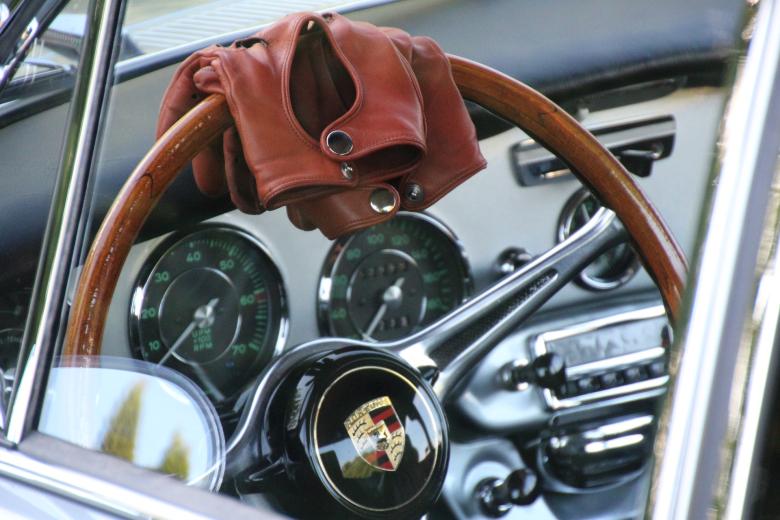Going Dutch: integration the hard way
Passing a Dutch integration exam is mandatory for most non-EU immigrants. This should be done within 3 years after their arrival, under the threat of a fine or non-extension of the residency permit. The exam fee is 350 EUR. The preparation course costs 4000-5000 EUR on average.
Since 2013, all immigrants “subject to mandatory integration,” including asylum seekers, must bear all relevant costs themselves.
“Om in te burgeren moet u Nederlands leren. En u moet leren hoe Nederlanders wonen en werken. Dat moet van de regering, dat staat in de wet Inburgering. Als u genoeg hebt geleerd, doet u inburgeringsexamen.” 1 From www.inburgeren.nl, website run by the Dutch Education Implementation Service (DUO).
A recent report from the Court of Audit revealed that only 30% of asylum seekers manage to comply with the new integration requirements. Given the associated costs, this is hardly surprising. Yet, the Dutch integration policy is fundamentally unfair for more than simply the economic reasons.
The Netherlands is one of the most radical examples of “one-way” integration, where newcomers are encouraged – and indeed forced – to adapt to the local mode of living. This includes far more than learning about the Dutch language and culture. (Non-European) immigrants are also told to behave in a “civic” manner - in the Prime Minister’s words, “doe het normaal, of ga weg”2 - and, in the near future, to sign a declaration subscribing to the “Dutch values.”
The content of the integration exam is a good illustration of deep stereotyping and cultural prejudice 3. Indeed, the majority of the questions seem to be addressed to a Muslim, non-white, uneducated person, aspiring to a cleaner or carpenter job. The exam authors worry that foreigners would typically forget to honor their appointments, show up at Dutch homes unannounced, and skip work. The questions further presume that foreigners are loud, rude, and “asocial”, and carry an implied notion that the Dutch are always considerate and polite. (Ironically, the Dutch are often perceived by foreigners in exactly the opposite way. Just think the supermarket or driving behavior. )
The European Commission Against Racism and Intolerance (ECRI) has long been criticising the Dutch integration policy. The most recent report published in 2013 reads: “In its third report ECRI recommended that the Dutch authorities genuinely reflect on their policies the idea of integration as a two-way process. To this end, it strongly recommended that the Dutch authorities develop a credible policy at central government level to address the integration deficit among the majority population, by promoting genuine respect for diversity and knowledge of different cultures or traditions and eradicating deep-rooted stereotypes on cultures and values...”
It is sad that the Netherlands, which was once admired worldwide for its openness to the other cultures, is now promoting the dominance of the “Dutchness.” Arguably, it is also counter-productive to the development of the Dutch society. By shielding itself from the alternative values, opinions and modes of life, it risks to fall into stagnation. It deprives itself of the possibility of self-reflection and self-criticism.
Nothing good will be achieved from trying to make Jans from Mustafas.
_______________________________________________________________________________
1. “In order to integrate, you must learn Dutch. And you must learn how the Dutch live and work. This is an obligation imposed by the Government, by the Civic Integration Act. If you have learned enough, you take a civic integration exam.”
2. “Behave normally, or leave.”
3. The author took the civic integration exam in 2015.
___________________________________________________________
Image: Gelungene Integration - Successful integration, by © Daniela Hartmann, flickr.com
Published on Law Blogs Maastricht
-
Looking beyond legal traditions towards practical effective legal assistance
National laws or ‘legal traditions’ are not the main obstacle to realising the ideal of ‘effective legal assistance’ embedded in the EU procedural rights’ Directives. The resistance to realising this ideal originates mainly from the professional cultures of relevant actors, including criminal...

-
If the glove does not fit, you must acquit
Those of you who were old enough to follow news headlines in the 90’s will probably remember this quote. For those of you who don’t: it is a famous phrase used by the defence team of O.J. Simpson in an – as would later turn out: successful – attempt to convince the jury of O.J.’s innocence.

-
On the Run for International Criminal Justice: Sudanese President Omar al-Bashir Escapes from South Africa
In the last few days, the tension between the International Criminal Court (ICC) and the African Union (AU) reached yet another climax in South Africa. Hosting the 25th AU Summit in Johannesburg, the South African Government guaranteed all attending AU leaders, including Sudanese President Omar al...
